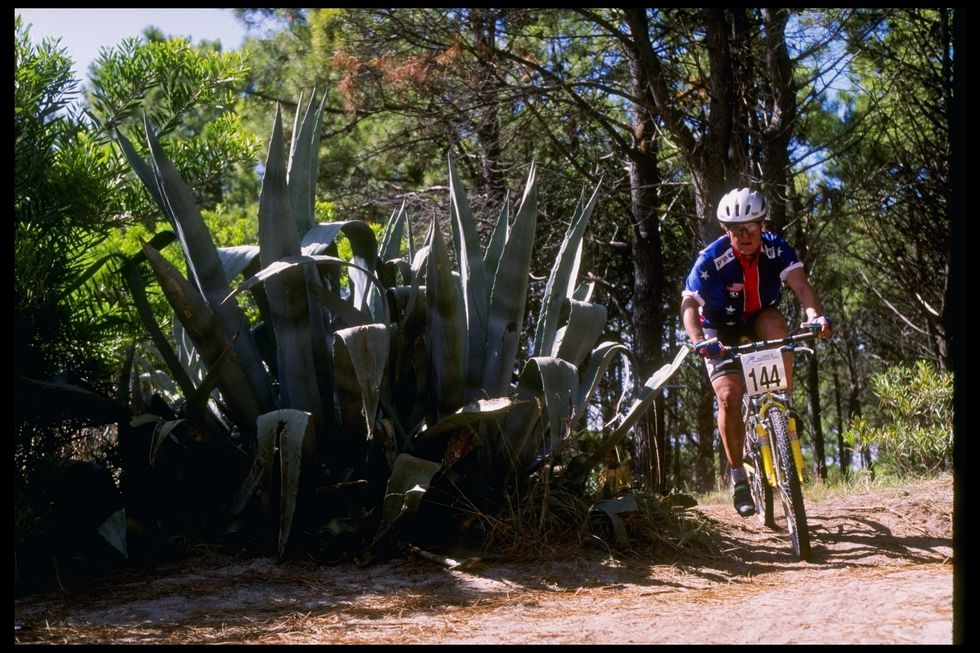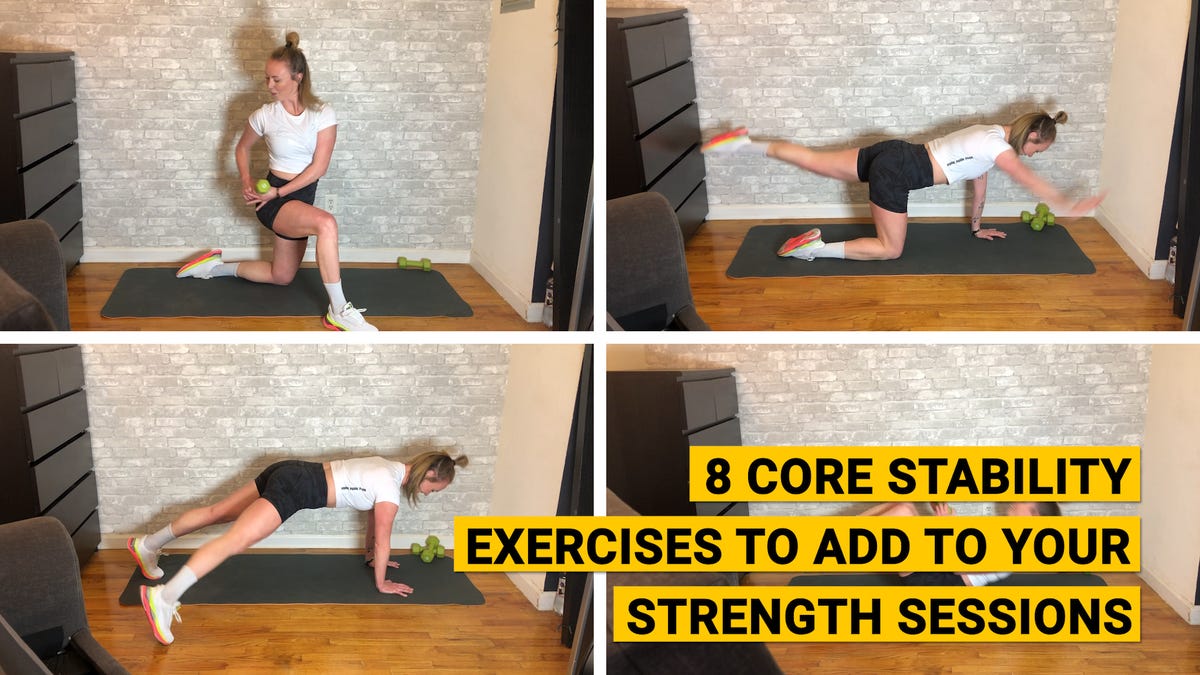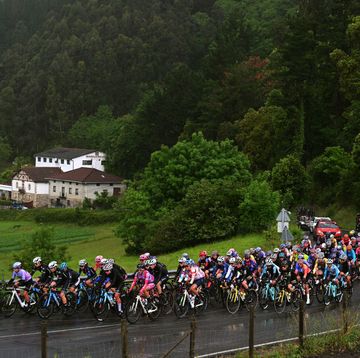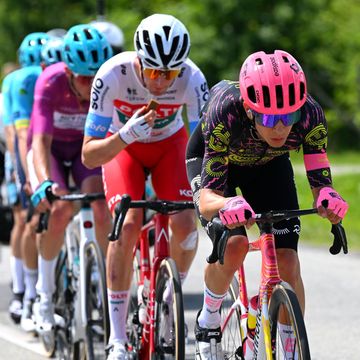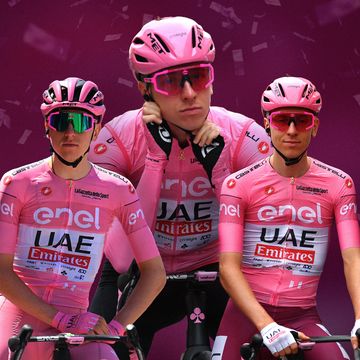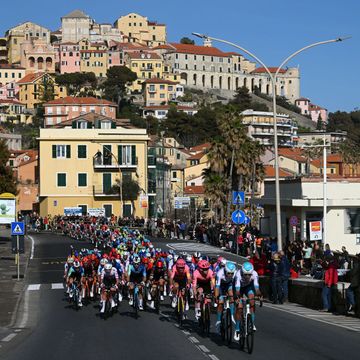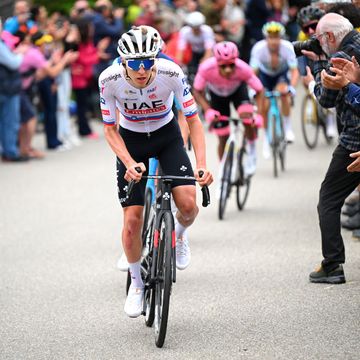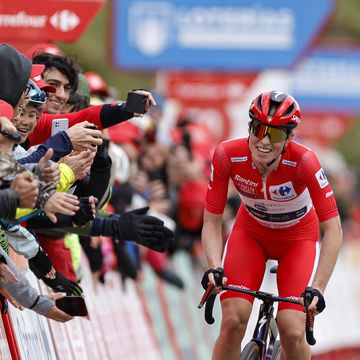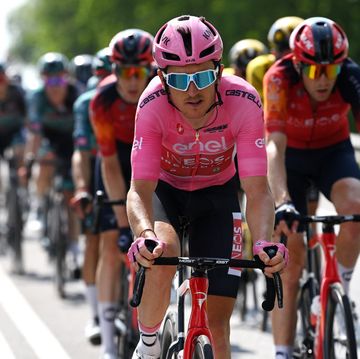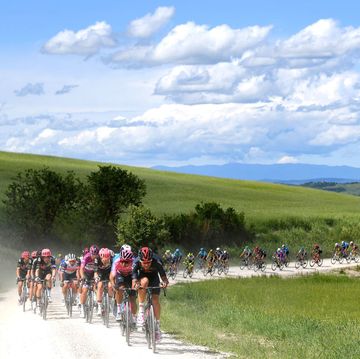After 45 minutes, Juli Furtado has only finished half of her cappuccino, which is saying something. Furtado loves coffee; at her racing peak, one reporter recounted Juli drinking six cups in a row. But she’s absorbed now, answering my questions about why she’s recently opened up about her mental health struggles.
Furtado was one of the most dominant riders in mountain bike racing history, and is still the only rider—male or female—to ever win the World Championship in downhill and cross-country. In one stretch spanning three seasons, she won 17 straight World Cup XC races. But her fierce athletic drive hid a traumatic childhood.
For years, even after retirement, Furtado found success and some measure of peace until, approaching 50, a series of major life events forced her to confront her past. After the high-profile suicides of Kate Spade and Anthony Bourdain, she shared her story with the San Jose Mercury News. The powerful feature, published in late June, explained that both Furtado’s mother, Nina Armagh, and her older sister, Gia Armagh, committed suicide, and that in the past three years, Furtado herself had struggled with crippling depression. “I didn’t want to live, but I knew I couldn’t die,” she told the Mercury.
Last week, she visited her alma mater, the University of Colorado at Boulder, to talk with the athletic department about better supporting student athletes. Afterwards, over that half-finished cappuccino, she opened up to Bicycling about her tough childhood, how it impacted her racing career, why it’s so hard to seek help, and what we can do for people who are struggling with depression.
You were very clear in the San Jose Mercury News story that you had a difficult relationship with your mom, and you were estranged from your father and brother for a while. How did that affect your mental health growing up?
It affected everything. We were isolated in Vermont. And I was just such the dutiful daughter. My mom kind of lived through me, and I took it upon myself to keep her alive. She sat us down and said, "I'm going to kill myself, and it's your fault." I'd go to sleep, and not know if she'd be awake or alive in the morning. My very first diary entry, it had in there that she was going to kill herself and it was my fault. She found it and read it and disowned me. I apologized to her. This is how much fear I had around her. As an adult, I can't even imagine reading a diary of your child, who's talking about you killing yourself, and disowning them. And then that child begging for love again. That's what my entire childhood was, always assuming guilt. That took forever to go away.
Did you subconsciously try to seek out a replacement family in bike and ski racing?
Oh yeah. After I graduated Stratton [Mountain School, a prestigious ski academy], I literally got on I-70 and headed west. But I had nowhere to go. I'll never forget making a call to my friend, Amy, who was on the US Ski Team and lived in Vail with her family. I said, “Remember when you said I could visit some time?” She's like, "Oh yeah." She had no idea that she was saving me. I was so alone. Just this kid, driving west, nowhere to go, inviting herself in. And I'll never forget knocking on that door, hoping so hard. I spent the whole summer there.
When did you first admit to yourself that you were struggling with your mental health?
About three years ago. I had every major life stress happen at the same time: a custody battle, relationship ending, selling my house of 17 years, losing my cat of 17 years who I loved. And it broke me. That's when I got help. But [what I went through] is so much different than what my mother had every single day of her life. Or my sister.
How did you know something was wrong?
I couldn't stop crying. I mean, I could not stop crying. And all of my coping mechanisms weren't working. It was like I had used up so much motivation, so much energy, in my childhood, and in anything else I had to overcome. I'm like, ‘I'm done. I've got no fight left in me.’ I was just empty.
So how did you get through things in your 20s, when you were racing? Did you just fight through it?
I didn't struggle with emotional disorders [then]. I struggled with just making a place for myself in this world. Leaving skiing [multiple knee injuries ended Furtado’s career] was really, really hard on me. Because that had become my family, and what I thought was my future from a very young age. And at 17, for it not to be the future, was just devastating on so many levels.
After your ski career ended, you started racing bikes. You were such a dominant cyclist, how did fame affect all of this? Did you feel a pressure to live up to that?
No, no. I was happy that I could fulfill my athletic ability. But in cycling, I put pressure on myself to represent women in a really strong way. There were certain races where I knew people were comparing my time to the men's. And I would want to go as fast as I could, because I knew that's what I was representing.
I was reading this old Outside profile of you from 1995. In it, your fellow racer Elladee Brown describes how you had a negative energy in racing. On the start line, you would sit off on your own, and she felt like you sort of had a negative vibe. What were your motivations for racing? Was it joy or was it darker?
Well, I'm going to dispute Elladee. What I did do was listen to music all the time. Pretty mellow music. But even on the start line of the Olympics, I cracked a joke to Susan DeMattei, which I'll tell you in a second. But it’s true that my motivation was more pessimistic. Everything you're taught to do to be a winner, I did the opposite. I would envision stuff going wrong, or losing. I never was like, ‘Oh let's envision winning.’ At that level, everybody wants to win. I [don’t believe in] the whole, ‘Well, they just want to win more’ thing. At some point, talent takes over.
What was the transition to retirement like, especially from such a dominant career? [Furtado was diagnosed with lupus after the 1996 Olympic Games.]
Well, 1996 was just so hard for me: being normal one weekend, and literally having to stop the next. I really don't like excuses, and so I was never going to say, "I think there's something wrong with me." I had all this press on me, and I was just flailing. We had our last Olympic qualifier on the course, and I won by eight or nine minutes. And then [the Olympic race] just went awful. [Furtado ended up in 10th place.] The Olympics were my dream since I was a kid. I wanted to win so badly. So that was absolutely crushing, getting diagnosed [after]. I had to retire out of the blue with a short career, nothing set up. It was brutal. Totally brutal. I was 30 years old. For a couple weeks, I'm like, ‘Oh I don't need to achieve anything more. I started so young, I've achieved so much.’ That literally lasted two weeks. Everyone else is still going up on the trajectory of their profession. If you're an elite athlete, you probably already reached the apex of your professional life at a really young age. And that's hard to deal with.
We talked a little bit earlier about the crisis you had a few years ago, and I'm curious if being an athlete affected your ability to seek help at that time.
No, not at all. It’s been a long time since I've been a professional athlete. But people were trying to be helpful, [saying], ‘You're a fighter. You've overcome so much. You'll get through this.’ That is the wrong thing to say to people.
That you're not fighting hard enough or something?
It didn't really have anything to do with being a fighter. It just makes you feel worse, and it does not help. Or, ‘Things happen for a reason.’ Or, ‘It will get better.’ As if that's just going to magically happen. All these platitudes that people always say. And I'm like, ‘I'm a broken fighter. I’m done fighting.’
What did you find that helped you get through that?
I had to leave everything. I had to leave and I had to get sleep. [Furtado spent three weeks in a residential treatment center, according to the Mercury News piece.] My stress levels were so freaking tapped out. My body was so tapped out. When you hear celebrities say they suffered from exhaustion? Don't you ever wonder what the hell that is? I did. And this is it. But [for a long time], with my son, during the custody battle, I thought, ‘I can't go away. I can't do that.’ And I think a lot of people who end up ending their lives maybe feel that, and they don't.…
That break never came for them?
Or they were never were able to take it. Because it takes a lot to drop out of life. And then when you go to some place to get help, you're surrounded by other broken people. I can't tell you the comfort in that. That's one of the greatest healing things. But it takes a lot to get there. Most people are forced to get help by people around them.
How long did you struggle with this, ‘I just need a break, but I can't do that yet,’ feeling?
Two years.
Wow.
I literally did not sleep for two years. Your body's not recuperating, you're awake, and all you're thinking about is what a piece of shit you are. This is where the childhood trauma [comes in]. I was always on high alert, my whole childhood. That really affects your ability to regulate your cortisol levels, and your stress. I had gotten to a point where I couldn't deal with stress.
You mentioned things people say meaning to help but which don’t help. What should they say? What is helpful?
I think they should acknowledge, ‘Oh my God you're in a really hard spot, and I'm totally here for you. Anything you need.’ If you look at the suicide rate, it's not going down. It's going up. And I think people just don't ever want to accept that somebody might want to kill themselves. I wasn't suicidal. I was in so much pain, but I didn't want to kill myself. I just didn't know what to do. The assumption that I would just get through this was so disheartening to me, because I wasn't getting through it. A part of me was just like, ‘If I tried to kill myself…then they would realize the pain I'm in.’ The thing about people being suicidal is they already feel horrible. And so, it's just more acknowledging their pain, and not trying to be like, ‘This will get better.’
I don’t read articles about me, but I do keep them, and the two that I thought summed me up best had the headlines “The Reluctant Hero” and “Enigmatic Superstar.” Because I always knew that there was a part of myself I wasn’t revealing, and that made it hard to feel like any kind of role model.
I’m in a good place now. It wasn’t like my entire life I was fighting a breakdown. I want to be clear that it was three years ago that I had that breakdown and I’m doing really well. And now, telling this whole story, I feel like I can reveal more, even though it’s not easy to tell.
You still ride, right? Does it mean something different to you now than when you were racing?
I do still ride. Twenty years ago, riding was training, it was for a career. Now, there’s no end goal there, no need to be fit. My mind, which is always crazy, just does better with movement and especially movement out in nature. That’s where I go to brainstorm and think things through.
What was the joke that you made at the start line of the Olympics that you mentioned?
Humor, for me, is my natural baseline personality. It doesn't cover up pain. When I’m in pain, I don’t have a sense of humor. Anyway, the Olympics were weird, because you had some nations there that practically never bike raced. So we had gotten a horrible draw. I was on the second line. I’m never on second line. And I think it was an athlete from Japan in front of us. And she had underwear on. This wasn’t someone who should be lined up on the front row in the Olympics. So I lean over and quietly said, ‘Susan, I forgot my underwear today.’ And she started laughing.


